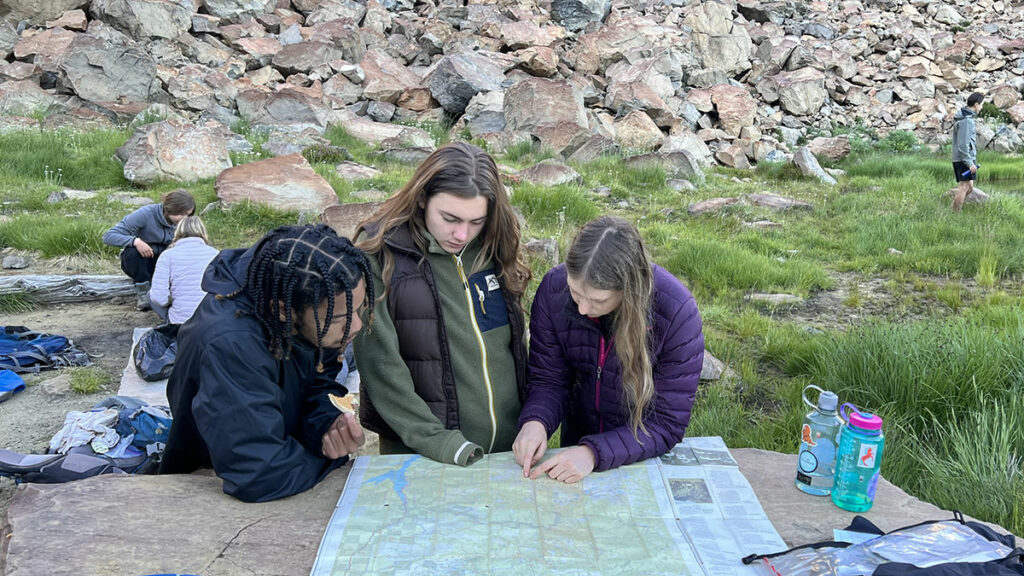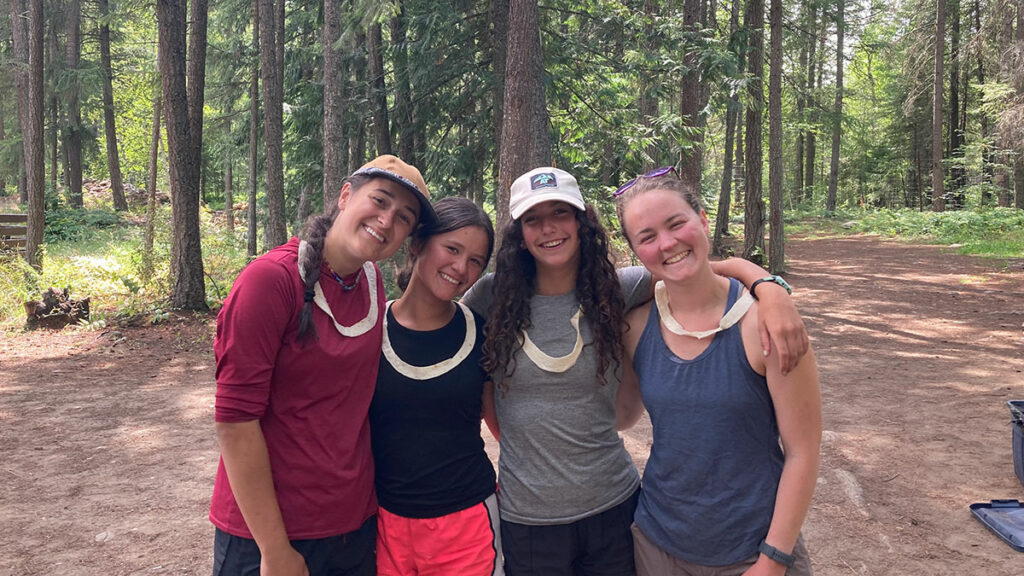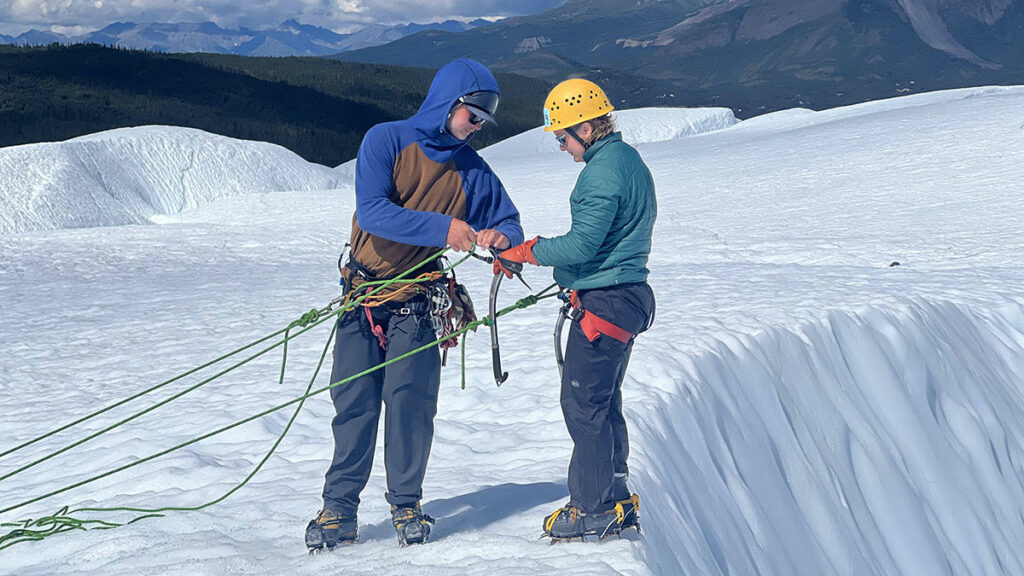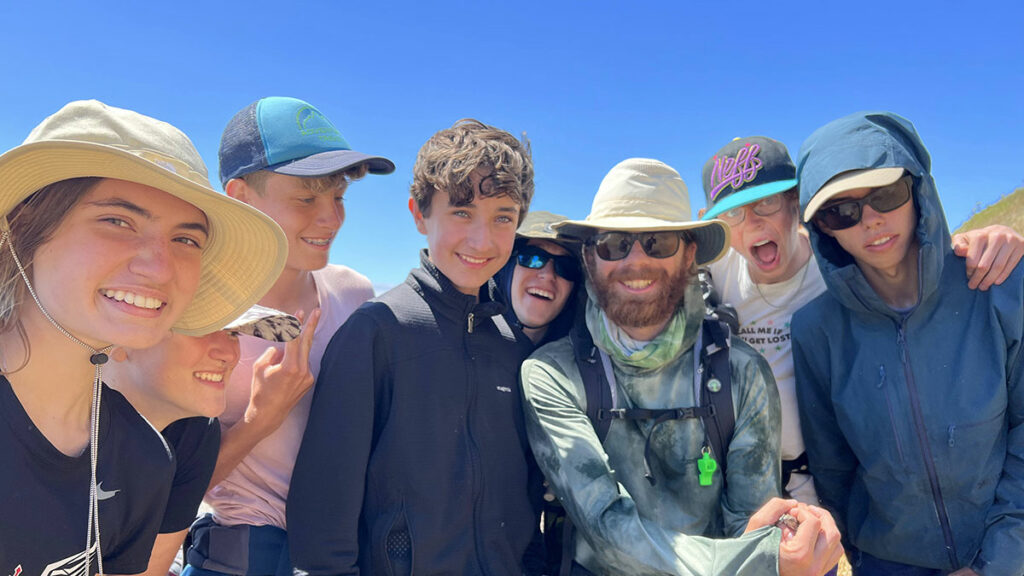
One of the first questions asked of prospective Adventure Treks instructors is “What qualities do you have that make you a good role model? How do you feel about mentorship for young people in the outdoors?” It is critical to our philosophy that our instructors are well prepared to show students the ropes, both literally and metaphorically. AT trips are all about having fun, forming community, and developing social-emotional skills that will last students a lifetime (we call these the Great 8 Outcomes). We consistently reach all of those goals by hiring instructors who are dedicated to being fabulous mentors.
The impact of mentorship on young people has been widely studied with overwhelmingly positive results. A variety of organizations depend on one-to-one or group-based mentoring to promote constructive behaviors and outlets for teens and young people. Mentorship can benefit everyone at every stage of life, and it should be a reciprocal process—both the mentor and mentee gain something from the relationship.

My experience as a mentor
For more than a year, I have been a volunteer mentor through Big Brothers Big Sisters in my hometown. I spend time with my mentee doing activities we’re both interested in, like arts and crafts, exploring the outdoors, playing games, and more. Sometimes she calls me to talk through a bullying situation at school, other times she wants to discuss her options for college and careers, and often we chat about our next matching costume idea for a silly event. She adds sparkle to my life in a wide variety of ways… most notably with the absurd amount of craft glitter I find on every single thing I own!
As my mentee becomes a teenager, it is most important to me that she continues to see our relationship as a space where she can express herself without any fear. The social environment of middle and high school is complicated and in constant flux—I want to be at least one friend in her life who she does not have to filter herself around or act cool for, and from whom she expects kindness and clear communication no matter the situation. A good mentor is an invaluable resource for a young person, and can come in the form of a teacher, coach, religious leader, camp counselor, or even Adventure Treks instructor!
Connections made between students and instructors during an AT summer don’t have to be constantly maintained all year long to be beneficial to students. I have written college recommendation letters and references for jobs for students who I have known for only one or two summers because the quality of time spent together is so high. It is also incredible to see AT students return to their homes and schools feeling empowered from the summer to step up as role models for their peers.

Research on mentorship
Positive relationships are powerful at every stage in life. Research shows that they are especially significant for the developing brains of young people as they navigate their identities, social spheres, and goals for the future. One study performed on a wide age range of participants shows that children and adolescents are especially prone to influence from outside sources. That makes sense! We learn many social and emotional skills from the modeling of family members and peers. Young people are extra attuned to their relationships because they are studying up on how to navigate the world.
There is some debate as to whether parents or peers have more influence on teenagers’ decision making and risk tolerance. The great thing about an adult mentor for a teen is that they don’t fit into either category—an ideal mentor or role model is a caring “third party” involved in neither family life nor social cohorts. They can provide guidance and advice or simply be a friend. The Big Brothers Big Sisters programs were specifically examined in 1995 in a study that became foundational to mentorship organizations—compared to youth without designated mentors through the program, kids who were matched with a mentor had positive social and academic outcomes as well as less likelihood to participate in risky activities.

Mentorship in general
Mentorship isn’t just for youth! Mentors can be found in academic settings, workplaces, trade or craft apprenticeships, hobby or sports groups, and more. Learning from those with more experience is a lifelong pursuit, and those with great mentors may become great mentors to others. Intergenerational exchange of knowledge is important for everyone involved, as younger folks learn from the experience of elders, and elders keep informed in a constantly evolving society. I am proud to define myself as both a younger mentee and an elder mentor!